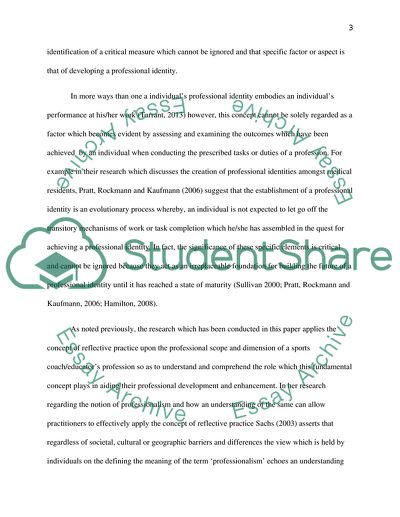Cite this document
(The Role of Reflective Practice in the Professional Development of a Term Paper, n.d.)
The Role of Reflective Practice in the Professional Development of a Term Paper. Retrieved from https://studentshare.org/sports-and-recreation/1834090-subect-sports-coaching-essay-title-critically-evaluate-the-role-of-reflective-practice-in-the-professional-development-of-a-sports-coacheducator
The Role of Reflective Practice in the Professional Development of a Term Paper. Retrieved from https://studentshare.org/sports-and-recreation/1834090-subect-sports-coaching-essay-title-critically-evaluate-the-role-of-reflective-practice-in-the-professional-development-of-a-sports-coacheducator
(The Role of Reflective Practice in the Professional Development of a Term Paper)
The Role of Reflective Practice in the Professional Development of a Term Paper. https://studentshare.org/sports-and-recreation/1834090-subect-sports-coaching-essay-title-critically-evaluate-the-role-of-reflective-practice-in-the-professional-development-of-a-sports-coacheducator.
The Role of Reflective Practice in the Professional Development of a Term Paper. https://studentshare.org/sports-and-recreation/1834090-subect-sports-coaching-essay-title-critically-evaluate-the-role-of-reflective-practice-in-the-professional-development-of-a-sports-coacheducator.
“The Role of Reflective Practice in the Professional Development of a Term Paper”, n.d. https://studentshare.org/sports-and-recreation/1834090-subect-sports-coaching-essay-title-critically-evaluate-the-role-of-reflective-practice-in-the-professional-development-of-a-sports-coacheducator.


